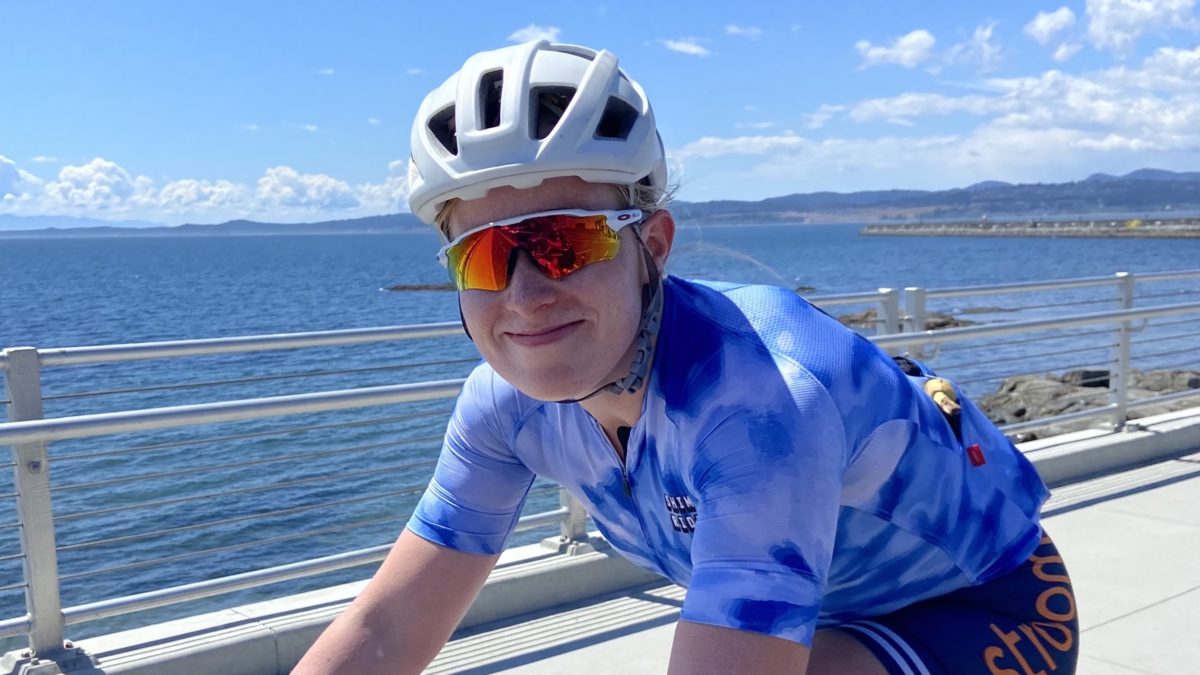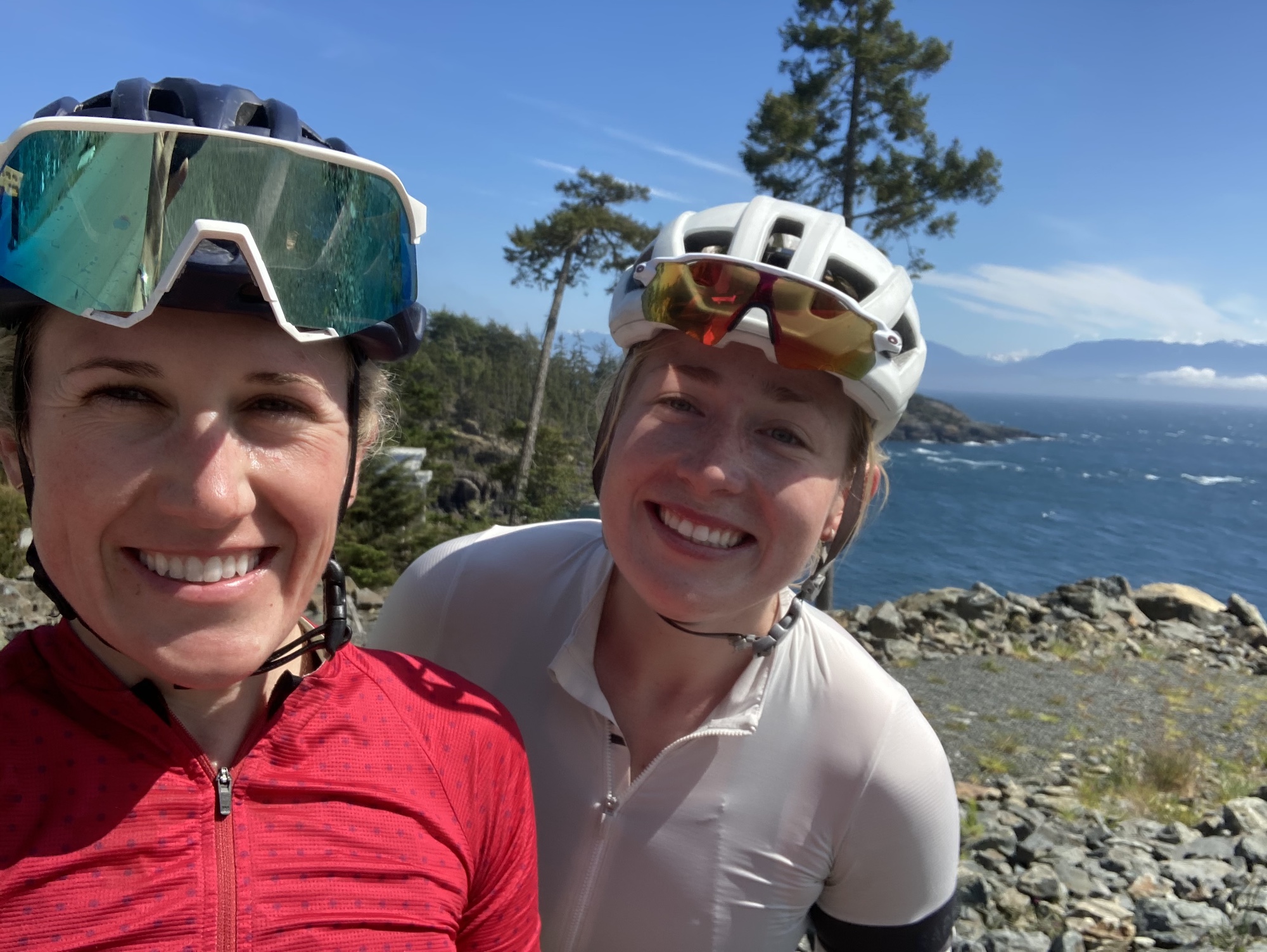From Tokyo to Beauce: Caileigh Filmer trades in boats for bikes at road nationals
Why one Olympic medallist rower is headed back to the start line this weekend at Canadian champs

When Caileigh Filmer raced at the Tokyo Olympics in July, it fulfilled a dream she had chased for over a decade. The Victoria B.C. athlete rowed to bronze in the women’s pair with teammate Hillary Janssens .
Just six weeks later, Filmer is taking the first steps towards her next dream. This time, it will be in on a bike, not in a boat. The Olympian is trading in her oar for two wheels to race the Canadian road national championships.
I caught up with Filmer over the phone between course recon sessions in Beauce, Que. to find out why, after 11 years on water, she’s changing gears and racing bikes.
Delayed Olympics leads to new roads
When the 2020 Olympics were first postponed, every Tokyo-bound athlete reacted differently. For a population of very goal-driven humans, the sudden change and accompanying uncertainty was difficult to deal with. Especially since many athletes – Canada’s rowers included – couldn’t continue their group training in the pandemic’s early days. Filmer knew she, personally, needed time to reset. She also needed to stay fit, in case the Games did happen in 2021.
“When COVID happened, I didn’t get the opportunity to be in the boat for a while, and I don’t think I should have been,” Filmer says, looking back at the early part of 2020. “Once the Olympics were postponed, I needed space from the boat for a while even if being in a boat had been an option. That’s when I got my first carbon bike and when I focused all of my training on the bike, and very little on the rowing machine.”
With another year added to her Olympic preparation, Filmer says the change of pace helped keep training fresh. Despite growing up in the cycling hotbed of Victoria, Filmer started rowing at Victoria City Rowing Club, she’d never really riding a bike much before. Learning something new made a tough training schedule easier.
“I thought it was really important that the training I was doing, I was having the most fun at,” says Filmer. “I believe that’s when you get the most out of training.”
The change of scenery also introduced new training partners, high performance athletes outside the national rowing team program. Filmer started riding with Victoria locals, Holly Henry, Riley Pickrell and Erin Attwell.
“I loved getting to train with them and meeting so many people in the bike community,” says Filmer. “Cycling is more of a sport for life – which is cool to transition into. I find everyone seems to be in a really positive group where they’re just stoked to be out there on their bikes.”
Women’s pair final l(2-) 2021 Tokyo Olympics
Fresh focus pays off on water
It was Henry and Attwell that convinced Filmer to take her cross-training to the races. As sports opened up, the local Sydney Time Trial was one of the first races to resume. At that point, Filmer was back to training in boats, but still doing several bike workouts every week. After trying a few for fun, Filmer was hooked.
“That was the spark. From there, I started to think it might be something that would work really well for me as a transition post-Olympics. And, funny enough, those weekly time trials were the only races I ended up doing in 2020.”
Canada’s national rowing team was unable to travel to any World Cup races in 2020, or world championships. It meant the rowers went into Tokyo not having raced since late 2019. For Filmer, having an outlet, even if it was a local club series, helped keep the race skills sharp before the Olympics.
“When we didn’t have the option to have races for rowing, training can get a bit stiff and repetitive. To have these cool little races to go do, a 24 minute race – which is very similar to our 6km erg test – it worked out really well. It allowed me to test myself in a way that wasn’t rowing, and I think that kept me pretty fresh,” says Filmer. “It also allowed me to feel those pre-race nervous vibes, the good nerves where you you feel nervous but know that means you feel good and you’ll go fast.”
The road miles – and 11 years of training on water – paid off in Tokyo. Filmer and Janssens won a bronze medal in the women’s pair race.

From “Freedom Saturdays” to full-time road racing
While Filmer’s training focused more and more on boats as Tokyo drew near, the team’s training program still kept some cross-training sessions in with the boat workouts. This kept the Canadian connected with the bike, and the sense of adventure she’d found on two wheels.
“When I had to focus more on more rowing and only had two or three rides during the week, my second session Saturday would be my “freedom sessions,” where my pair partner said I could do whatever I want. “Freedom Saturdays” is what I called them.”
Filmer would usually join in with Holly Henry for a long, unplanned road ride. One time the pair rode all the way to Coombs, to meet Henry’s sister on her way back from Tofino.
Now, with Tokyo in the rearview mirror, Filmer’s focusing on bikes. While she’s new to the sport, the bronze medallist says her time in the boat has helped her adapt to some parts of cycling faster.
“My strength in rowing isn’t my absolute power, or my size – I’m quite small for a rower – but what I find transferable is being able to do a wattage, repeatedly, from the first stroke to the last,” says Filmer. Her size also forced the UVic grad to get more out of every movement than her rivals. “In the boat I didn’t have the size, so I really had to think about how I’m getting everything out of every stroke. Thinking about maximum efficiency, and learning how to be smooth on a bike, I found transferred well. “The art of cycling is really similar to how I think about rowing.”
With that in mind, Filmer is focused on this weekend’s time trial. Road race tactics, she says don’t transfer over as easily from the boat.
“That’s still all still very new. I’m learning that it doesn’t matter how strong you are, you have to have tactics. You can’t just go out and go hard the whole time, compared to rowing,” Filmer shares. With that in mind, this Olympian’s keeping her expectations in check. “In the road race, the goal is more just to enjoy the race and gain experience. I don’t know what the future will look like yet, I’m just enjoying racing without any of the pressure I had in rowing.”
“Right now, the priority is just having fun and pushing myself.”

Rowing shells to road races isn’t uncharted waters
If Filmer does make the switch to road racing, she won’t be the first to successfully trade boats for bikes. Several other rowers, including Olympic medallists on water have enjoyed second careers on two wheels.
Jason Osborne, the first Zwift world champion, is a German lightweight rower. After winning a silver medal in the lightweight men’s double in Tokyo he’s signed with Deceuninck-QuickStep to race on the road.
Rebecca Romero won gold medals for Great Britain in both sports in the early 2000s. Cameron Wurf, who races on the WorldTour and in triathlon for Ineos, appeared at the 2004 Olympics as part of Australia’s rowing team. Hamish Bond, part of New Zealand’s dominant men’s pair, which went undefeated for years, earned an Oceania continental time trial championship title before returning to the boat to win another gold medal as part of the Kiwi men’s eight.
And, of course, Canadian gold medallist Kelsey Mitchell famously had a late start to her own successful cycling career, joining the national track team through RBC’s Proving Grounds program.

